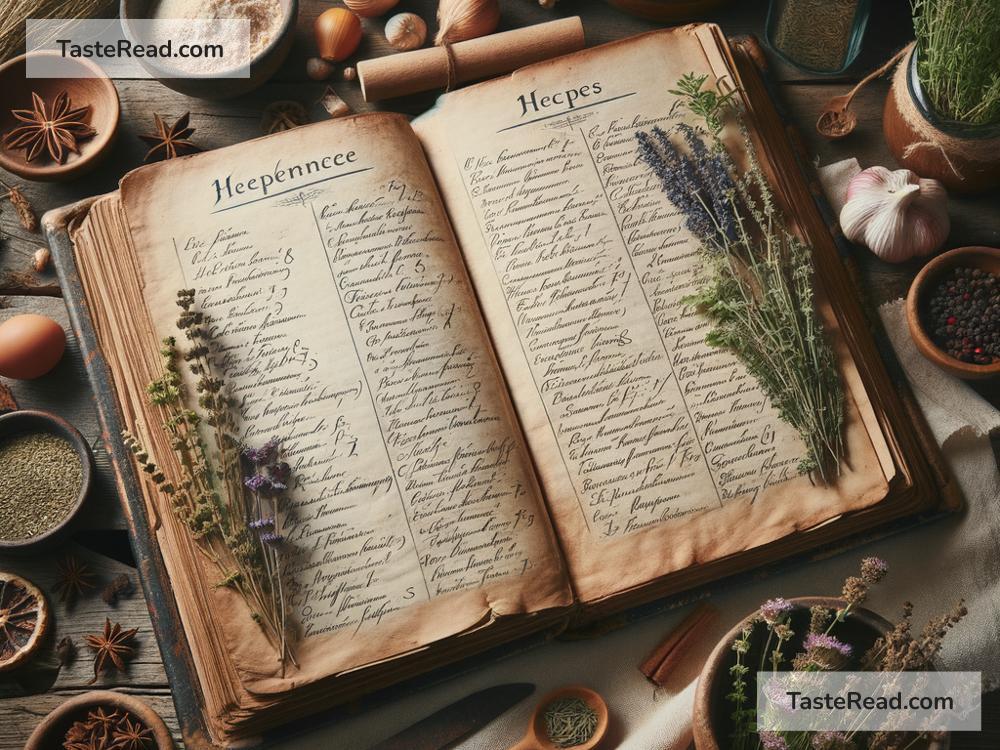Cooking Through History: Recreating Ancient Recipes
Introduction
Cooking is an activity that brings people together, filled with excitement, creativity, and discovery. But have you ever wondered what our ancestors ate centuries or even millennia ago? What flavors and ingredients were common in the dishes of ancient civilizations? Recreating ancient recipes is not just an exciting culinary adventure; it’s like time-traveling through our taste buds, exploring history in the most delicious way possible.
The Delight of Ancient Cooking
Ancient cooking is fascinating because it gives us a glimpse into the daily lives of people from different parts of the world, revealing their culture, economy, and social practices. By recreating ancient recipes, we can learn a lot about how food and cooking methods have evolved over time. It’s amazing to think that some ingredients and techniques have remained unchanged for thousands of years, while others have transformed or become obsolete.
Discovering Ancient Recipes
Archaeologists and historians work tirelessly to uncover the secrets of ancient cuisines. They study artifacts, writings, and even pollen samples to piece together the diets of past civilizations. Some of the most notable sources for ancient recipes include clay tablets from Mesopotamia, Egyptian hieroglyphs, and texts from ancient Greece and Rome. With this information, enthusiasts and chefs alike can embark on a journey to recreate these historical dishes.
Popular Ancient Recipes to Try
-
Bread and Beer: The staples of ancient diets in many civilizations, like Mesopotamia and Egypt, included bread and beer. Surprisingly, bread recipes from thousands of years ago are quite simple, often made from water, grain, and sometimes yeast collected from the environment. Brewing ancient beer, on the other hand, is a more complex process, but modern brewers have accepted the challenge, creating beers inspired by ancient recipes.
-
Roman Mustard: The Romans loved their condiments, and one of the popular ones was mustard. A simple recipe involves grinding mustard seeds and mixing them with vinegar, honey, and herbs. It’s a taste that takes you back to ancient Roman banquets.
-
Sumerian Stew: Going further back, the Sumerians in ancient Mesopotamia left behind a recipe for a meat and vegetable stew. Despite its simplicity, recreating this stew gives a hearty taste of life in one of the world’s earliest civilizations.
-
Ancient Egyptian Flatbread: Bread was a cornerstone of the Egyptian diet. Made from emmer wheat, their flatbreads resemble the pita bread we enjoy today. Baking this bread offers a direct connection to the ancient Egyptian way of life.
The Challenge of Authenticity
Recreating ancient recipes offers a thrilling culinary experience, but it also comes with challenges, primarily in authenticity. Many ingredients used thousands of years ago are no longer available, and our modern taste buds might find some of the flavor combinations unusual or even unpalatable. Additionally, our cooking technologies have evolved, making it difficult to replicate ancient cooking methods accurately. Despite these challenges, the goal is to come as close as possible to the original tastes and textures, using available resources and a bit of creativity.
Why Try Ancient Recipes?
Here are a few reasons why experimenting with ancient recipes is worth your time:
- Cultural Exploration: It’s a unique way to learn about and connect with ancient civilizations.
- Educational Value: Parents and educators can use cooking as a fun and interactive tool to teach children about history, geography, and science.
- Culinary Adventure: For cooking enthusiasts, it’s a chance to expand your culinary skills and taste profiles.
Getting Started
Ready to start your historical cooking adventure? Here are a few tips:
- Research: Start with a bit of research on the cuisine of a particular civilization that interests you.
- Find Substitutes: Look for modern substitutes for ancient ingredients that might not be available.
- Experiment: Don’t be afraid to experiment with flavors and techniques. Remember, it’s about the experience as much as the result.
- Enjoy the Process: Enjoy the journey of connecting with the past through food. Share the experience with friends and family.
Conclusion
Cooking through history by recreating ancient recipes is a delightful exploration that connects us with our ancestors in the most fundamental way—through food. It offers insight into past cultures, challenges our culinary skills, and provides a unique dining experience. So, why not take a step back in time and discover the flavors of the ancient world in your kitchen? Your taste buds might just thank you for the journey.


